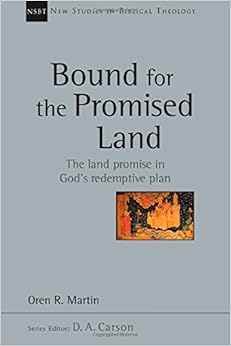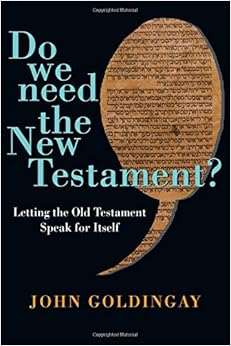
Oren R. Martin introduces the newest monograph in the New Studies in Biblical Theology. It is about time that the NSBT series had a book on the land promises in the Bible. Unfortunately, I am not sure that this is the work they were hoping for. This is by far the weakest work in the entire series that I have read. The reason for this is that Martin adds virtually nothing to our understanding of the Promised Land. Further, he primarily interacts with other scholars from his own theological tradition (conservative Southern Baptist). It feels as if he is just condensing the thinking of Gentry, Wellum and Beale. He essentially argues that what was promised in the Old Testament concerning the land is fulfilled in the New Testament in Christ. He doesn't effectively, in my opinion, dispatch Dispensational thinking. It is disappointing.
That isn't to say the book is useless. On a practical level, I have found this book helpful when needing a cliff-notes version of other larger works. The book is readable. Unfortunately, the level of technicality that is normally displayed in NSBT just isn't here. This book could have been so much more.
Do We Need the New Testament?: Letting the Old Testament Speak for Itself by John Goldingay (IVP, 2015)
I like John Goldingay. He is a brilliant Old Testament scholar and I have personally profited greatly from his work. This new work promises to be a sort of preview of a biblical theology his writing. That sounds great. Too bad this book isn't. There are some good points here and there (his chapter on the Grand Narrative and the Middle Narrative in chapter four is pretty solid). The weakest spot of this book is the fact that John Goldingay oversells the idea that the New Testament offers nothing really new. Paul makes abundantly clear that there is something radically new with the coming of Christ (as does the book of Hebrews).
One of the more ridiculous chapters in the book is when Goldingay argues that we should be wary of being Christ-centered, Trinitarian or constrained by the rule of faith when interpreting the Old Testament. Jesus had no such problem using himself as the hermeneutical method for reading the Old Testament. His statements are not very well grounded or defended. This is obviously debatable since some have given this book great reviews. However, I found the work frustrating.
I am a fan of the Old Testament. I think that it contains almost everything we need to know in order to accurately interpret the New Testament. Goldingay's work is definitely provocative. Unfortunately, in this case, I am not sure that is such a good thing. Maybe his full-length biblical theology will do a better job explaining his thinking. For me, this book is a definite pass.
*Thanks to IVP for providing the review copies*

"we should be wary of being Christ-centered, Trinitarian or constrained by the rule of faith when interpreting the Old Testament. Jesus had no such problem using himself as the hermeneutical method for reading the Old Testament."
ReplyDeleteAmen!